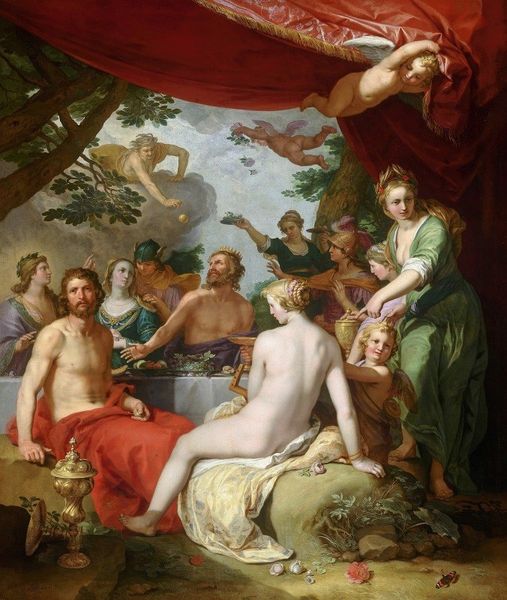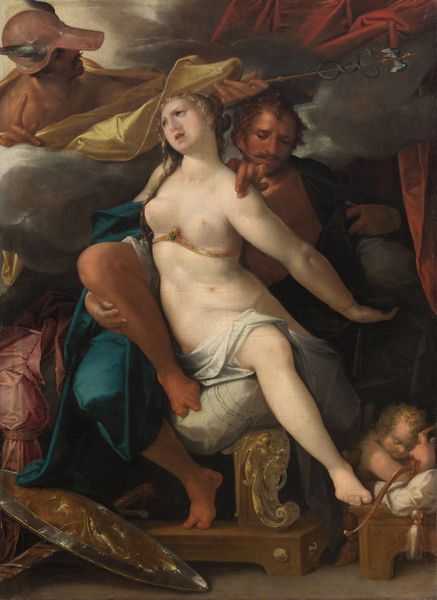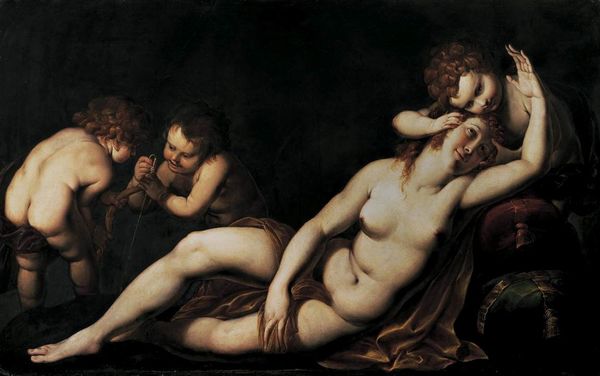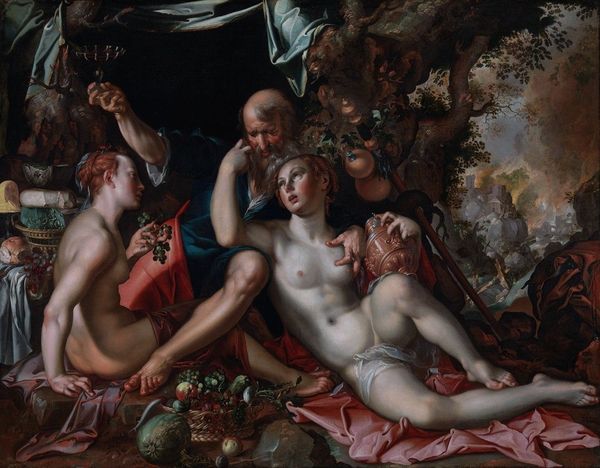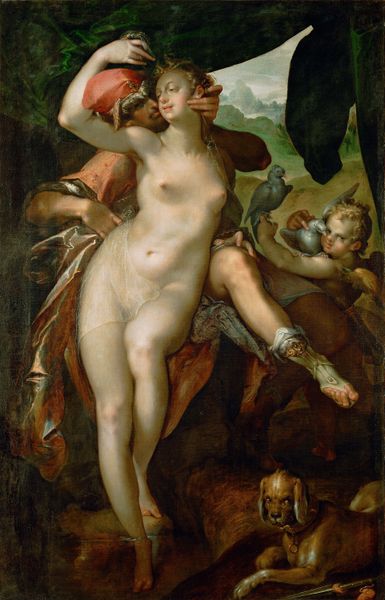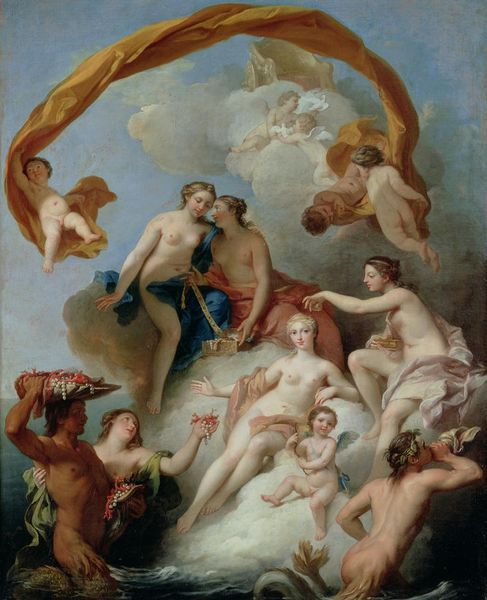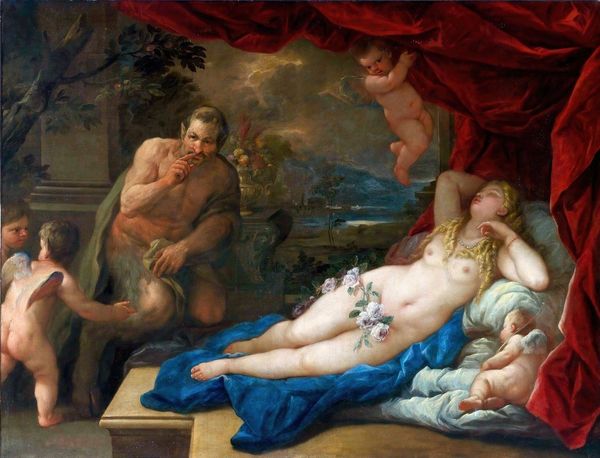
Dimensions: 282 x 206 cm
Copyright: Public domain
Guido Reni made ‘The Toilet of Venus’ sometime in the 17th century, using oil paints on a large canvas. The way Reni applied the paint is crucial to understanding the work. You can see areas where the brushstrokes blend seamlessly, creating soft, luminous flesh. But elsewhere, especially in the drapery and background, the handling is much looser. This contrast is important. Oil paint was then emerging as a medium that could convey both polished illusion and a record of the artist’s own hand. It took time, and the division of labor, to render the goddess's body so realistically. Note too the costly pigments used, especially the ultramarine blue, derived from lapis lazuli. This would have been ground and prepared by workshop assistants, underlining the economics of artistic production. ‘The Toilet of Venus’ isn’t just about mythological beauty; it's a testament to the material possibilities of painting, and to the social conditions that made such artistry possible.
Comments
No comments
Be the first to comment and join the conversation on the ultimate creative platform.


